Four months have passed since the demise of Sarod Maestro Pt. Rajeev Taranath in city on June 11, 2024. To mark his 92nd birth anniversary today (Oct. 17), Star of Mysore is publishing a write-up by his disciple Rumi Harish, Transman, Musician, Social Justice Activist and Writer, in honour of this world-renowned maestro, who lived in Mysuru and was its major cultural icon.—Ed
By Rumi Harish
On 10th June 2024, I received a message, “Guruji’s condition is not good” from Krishna Manavalli, Professor, Guruji’s ‘Magu’ (child) and one of his students. Next day, early in the morning, I left for Manipal Hospital, Mysuru from Bengaluru, with my friend and co-worker Sunil Mohan.
As the taxi made its way through the Highway, I just could not hold my patience. I kept urging the taxi driver to go faster. My only saviour in life, the panacea for controlling my emotions and help me be in the everyday space with dignity, is always the Jaunpuri sung by late Pandit Mallikarjun Mansoor. Through the entire journey from Bengaluru to Mysuru I repeated this Jaunpuri several times.
He was my passion
As we journeyed, I fell into a kind of stupor. My ears were filled with these lyrics from Naseer ud Deen Naseer’s qawwali “Dillagi dil ki lagi ban kemitaa de thihai” (what you start liking will turn into a passion and erase your self). I woke up with a shock, thinking of how in such a short span of six months, Pandit Rajeev Taranath, the artiste who lives on in his students, had become my passion in singing. Sorry, I cannot use ‘late’ for him.
He was a musician who never wanted to reach back to the first note ‘sa’ (shadja) in Indian music. Ending any phrase in Hindustani music, in any raga, is reaching back to the first note in order to finish, to end. He often said, “it feels like finishing life with no hopes. I am not old enough to sing an old dying ‘sa’, and I don’t want to sing that note even on my death bed.”
The first time I went to his house was when he was 91. I stepped in and felt I belonged there. It is not easy to feel a sense of belonging everywhere, especially after my body and voice transition (I am a gender transitioned person working on voice transition) with the full confidence of seeing my future. Some days before, magic had taken place with a call. I just could not wait to meet him after many years.
Again, Naseer ud Deen Naseer rushed to my mind, “Umrguzarihaima gardardnajaanadil ka” (age is catching up, yet nobody understood the pain in my heart). I remembered my teachers’ responses for my gender dysphoria and transition process. In fact, one of my teachers even said that I was risking 30 years of life in Hindustani music, all the practice and preparedness I have gained in these years.
When I shared this with a relative and old friend, he said “So, here is an end to your music. You of course know your talent. But does a donkey know what fragrance it bears on his back?”
This time, I did not waver. I knew my voice or my music, both my companions for lifetime, would not come in the way of the inner compulsion for a new life, a life that I always identified with. That is, I could never be a woman. I was, and am, a man. And I did not say no to hormone replacement therapy for health reasons either. Obviously, my voice broke. I was clueless. I requested many artistes to help me, but nobody understood the pain in my heart.
Music scared me
For one-and-a-half-years, I saw my voice changing. It broke, and at one point, I thought I might have to give up music. The fact that I was unable to sing like before the transition pushed me into a dark silence. I stopped listening to music or even humming within myself. Music scared me. The day I saw Rajeev (that’s how he asked me to call him as both of us did not believe in ageism or some of the conservative traditions of Classical music), this fear deep inside broke out of my body. It simply flew out the window the moment he said “Haadayya… Hedrukobeda” (sing man… don’t be scared)!
Rajeev started teaching me from January 2024. I had around 8 classes. Even in this short period of time, he cast a magic spell with his music. On the day I went to see him before his passing away, a friend of Rajeev who was in the hospital with him told me this. It seems, he said that the music fraternity should apologise to all students of music who are denied the right to learn because of their caste, gender identity, sexual orientation, or the region they come from, or those students who live in non-conducive environments, despite their great passion for learning.
When I heard this waiting in the hospital to see him in the ICU, my heart melted at this vision of democracy and equal access that he upheld, even within a tradition that is often caste and gender-based and is hierarchical in nature.
All along the time of transition, I was severely demotivated and scared of singing because of my changing voice. The very first day I met him after all those years, he asked sharply, “Do you want a melodious voice or do you want to sing.”
This question unsettled me to the core. I have always thought that voice quality never mattered in singing. But here I was obsessing about the changes in my voice, the new pitch, a different texture. Instantly, I realised my own prejudice working all the time. It is like caste-prejudice. Even when you claim to be an anti-caste person, the caste-bug inside gets curious about the other person’s caste-status. I felt exactly like that when it came to my own voice.
So, I had to answer him in a straight-forward manner. And I did. I said I wanted to sing. He told me that being Mansoor’s ardent fan I should not have taken all this time to understand this. I didn’t feel embarrassed. I just realised that at that moment I found one of my ‘Gurus.’
Different kind of artiste
When I listened to his music in my childhood or in later years, I was keenly aware of the kind of tutelage he had. I always felt that he was a very different kind of artiste. For him, while technicalities were routine, the raga was something you related to with the intensity of being in love.
He could relate to several ragas in different ways — with some as if it was light-hearted flirtation, with others as if in a debate or a dialog, he could be courteous and nice with a few ragas, but with some like Yaman, he was involved body and soul.
I have often felt that he is a visual artiste. The playing begins with the romantic and nurturing touch on the Sarod. Then, as he delineates the raga, he slowly constructs abstract structures, as if in an act of spontaneous and creative lovemaking. This leads to structures of multiple dimensions built with utmost love and care.
As a listener, you see this construct only if you are in silent musical conversation with the performer. After some point, it was difficult to say, who led the playing — the raga or Rajeev. Perhaps, only he could answer. Lost in that magic, his face shone with the light of love — the love of the raga.
That day when I visited him in the hospital, I again felt this, “Dekh the rehegaye hum haat se jaanadil ka” (I stood watching when my heart slipped from my hand). I knew he was, or was forced, to sing the note ‘Sa.’ But the other swaras held him tight. He could not leave so easily. I held his hand in silence in the ICU. I spoke to him in silence for a long time.
Task of teaching a transgender
I sang to him “Unke andaaz e karamunpewohaanadil ka” (his style of being kind to people, and how he touched my heart). When Rajeev took up the task of teaching a transgender like me, it created history in a way. It was a new history that Rajeev and me created perhaps. The world should recognise this generosity. At the gut level, I know that such teachers are not a rarity. But they give the radical strength to this musical tradition.
Finally, before leaving, he was still alive then, I whispered in his ear, “Go and sleep in the arms of Sa, Sa which is your mother Sumathi Bai and Sa which will lead you into another life of passionate music, take you to another Ustad Ali Akbar Khan Saheb. You will realise its beautiful inner peace.”
I reached my house in Bengaluru only to receive the message that he had departed, maybe into another room full of students learning music from him, at another location and another plain of reality.
Rajeev, see you soon for we have some unfinished tasks —singing Puria, Lalith, Miyan Ki Todi, alongside continuing our debates on several dimensions of music. There is our shared passion for composing music too. Much love for creating history by teaching me and making me feel most comfortable in myself and with my transitioning voice.



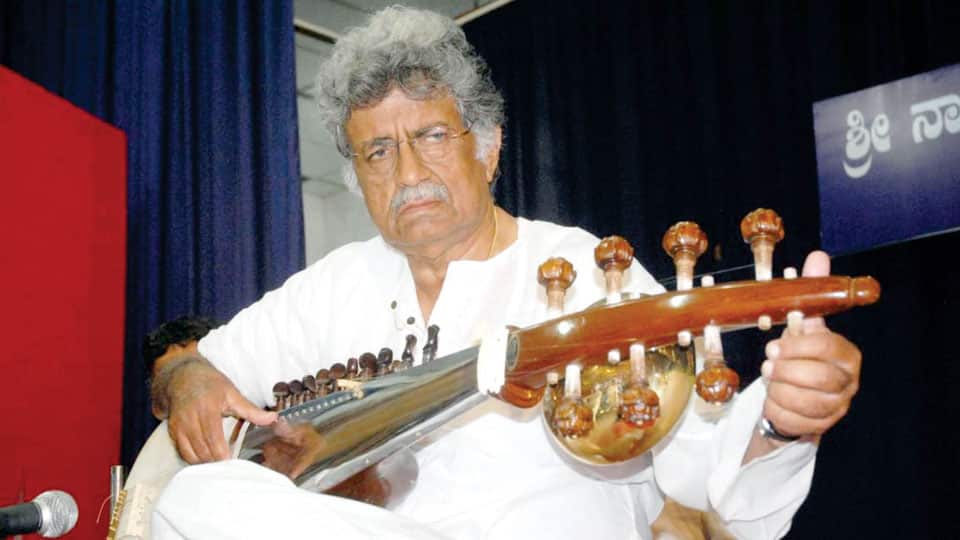
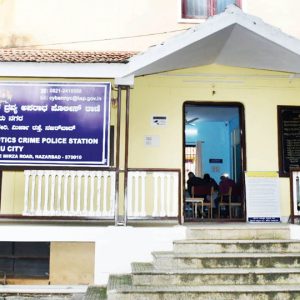
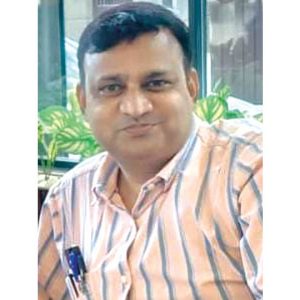
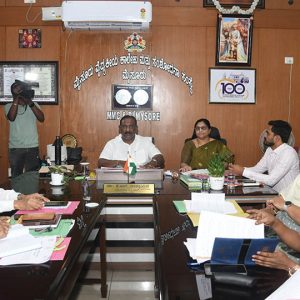
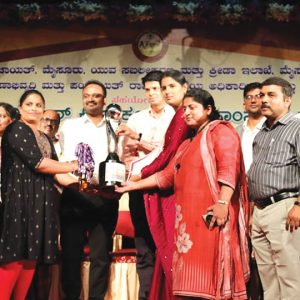
Recent Comments